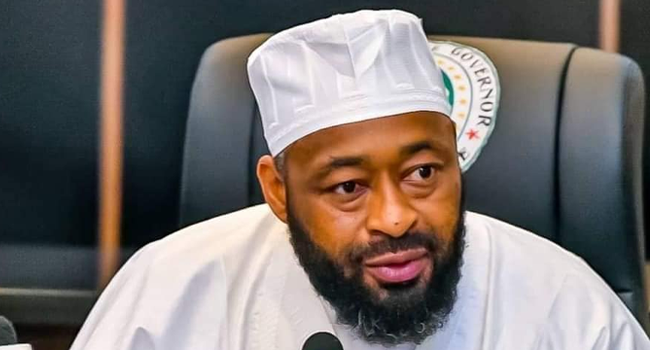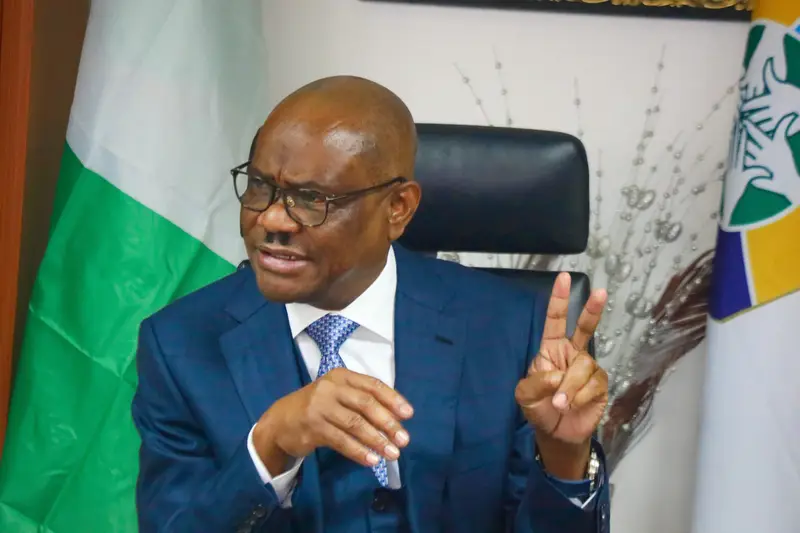Governor Umaru Bago’s shutdown order of Badeggi FM in Minna has triggered widespread criticism from journalists, civil societies, and Amnesty International. Read the full report.
Introduction: Media Shutdown Sparks Controversy in Niger State
A storm of criticism has erupted across Nigeria following the directive by Governor Mohammed Umaru Bago of Niger State to shut down Badeggi 90.1 FM, a popular independent radio station based in Minna. The governor’s order, which also called for the confiscation of the station’s license and profiling of its owner, has sparked widespread condemnation from journalists, civil society organizations, and human rights groups including Amnesty International.
The controversial move has reignited the debate around press freedom, executive overreach, and the legality of government interference in independent media operations.
Governor Bago’s Directive: Allegations of Incitement
Governor Bago issued the order during an expanded All Progressives Congress (APC) Caucus meeting held at the Niger State Government House. According to a statement by his Chief Press Secretary, Bologi Ibrahim, the governor alleged that the radio station was “inciting the people against the government” and promoting “violence” through its programming.
In response, the Commissioner for Police and the Commissioner for Homeland Security, Brig. Gen. Bello Abdullahi Mohammed (RTD), were directed to seal the radio station immediately and begin profiling its owner.
This sudden clampdown has raised significant concerns about the misuse of power and the shrinking space for independent journalism in the state.
Badeggi FM Reacts: “NBC Should Handle This, Not the Governor”
Abubakar Shuaib, Director of Operations at Badeggi FM, pushed back strongly against the allegations. He emphasized that the station operates under strict compliance with the guidelines set by the National Broadcasting Commission (NBC), Nigeria’s broadcast regulatory agency.
“Our duty is to hold leaders accountable. The governor should submit his complaint to NBC for investigation instead of directing security operatives to harass us,” said Shuaib.
According to him, NBC monitors their programs daily and would be in the best position to determine if any of their content violates the broadcasting code.
Pattern of Harassment: Journalists Speak Out
This is not the first time press freedom has come under threat in Niger State under Governor Bago’s administration. In November 2023, Voice of America reporter Mustapha Nasiru Batsari reported that Brig. Gen. Bello Mohammed (RTD) verbally assaulted him and tried to seize his recording device at the Government House when he sought comment on a deadly communal clash.
Similarly, in January 2025, Yakubu Mustapha Bina, a correspondent for People’s Daily Newspaper and Chairman of the Correspondents’ Chapel of the Nigerian Union of Journalists, was detained by the DSS and the police for several hours. His phones were confiscated for three days over a report critical of the governor’s media adviser.
These repeated incidents paint a worrying picture of growing intolerance toward critical media voices in the state.
Civil Society, Amnesty International Condemn Action
Amnesty International Nigeria issued a damning statement, calling the governor’s order “lawless and repressive.” The organization argued that blaming a radio station for the state’s security failures is “an abuse of power” and “an open attack on media freedom.”
“Targeting independent media is a deliberate attempt to silence objective reporting and create a climate of fear,” Amnesty International said.
Accountability Ambassadors, a Minna-based civil society group, also condemned the order, emphasizing that such an action violates Section 39 of the Nigerian Constitution, which guarantees freedom of expression and of the press.
Muhammad Alfa Muhammad, the group’s speaker, stated:
“The proper recourse is a formal complaint to NBC. Anything beyond that is executive overreach and a threat to democracy.”
Legal Perspectives: What Does the Law Say?
Under Nigerian law, only the National Broadcasting Commission has the authority to suspend or revoke a broadcast license. The constitution, as well as international human rights charters to which Nigeria is a signatory, guarantees freedom of speech and the press.
Section 39 of the 1999 Constitution clearly stipulates that:
“Every person shall be entitled to freedom of expression, including the freedom to hold opinions and to receive and impart ideas and information without interference.”
Several legal experts have pointed out that the governor’s directive lacks legal backing and should be rescinded.
Conclusion: A Test for Democracy and Accountability
The shutdown of Badeggi FM is more than just a local news story — it is a significant test of Nigeria’s commitment to democratic values, press freedom, and constitutional order. If state governors are allowed to bypass legal frameworks to silence dissenting voices, it sets a dangerous precedent that threatens not just journalism but democracy itself.
For Nigeria to thrive, leaders must tolerate criticism, embrace transparency, and operate within the boundaries of the law. Only then can the media serve its essential role of holding power to account.





